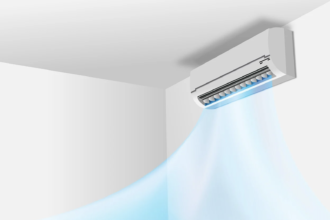Water is an essential resource that we all require therefore having access to clean and safe water is crucial for our health and well-being. It is important to keep in mind that not all water sources are naturally pure and often contaminants may enter your water supply system. Whether you are a homeowner or a business owner, selecting the right water supply system is important to ensure that you are getting the right quality of water. Choosing a water company that takes into account all your water needs and demands is essential, therefore we recommend using a reputable supplier, like this water company.
Assess your water quality:
Different areas may have different levels of contaminants in their water supply, such as minerals, sediments, bacteria, and chemicals. To understand the quality of your water supply you should first consider hiring a professional water testing service or contacting your local health department to help you assess your water quality.
We recommend conducting a water quality test to identify specific contaminants in your water supply and how best to choose the right water supply system for your home. This information is crucial as it will help you determine your desired treatment system such as; a simple sediment filter, a water softener, or a more advanced reverse osmosis system.
Understand the types of water supply systems that are available:
Each type of water supply system has its advantages and disadvantages; the most common are:
- Private wells
A well is able to draw water from underground aquifers and is a reliable source of water as well as a great cost-effective alternative to other forms of water supply. But the quality of your water will change therefore testing this water is essential to ensure it is safe to drink.
- Municipal water supply
Most often this form of water supply has been treated, but can sometimes contain chlorine, fluoride, or other chemicals which some homeowners prefer to filter out of their system.
- Rainwater harvesting
Storing rainwater for household use is a great way to make use of the natural environment and is a great option in rainfall areas however the maintenance of this water system is often costly.
- Surface water
Making use of lakes, rivers, and ponds, however, this method is not a frequent alternative for homeowners as they will require a filtration system to ensure that the water is safe and drinkable.
Determine your water treatment goals:
Every home may have different water treatment needs based on the quality of your water, your location, and the purpose for which you will want to use the water. Therefore having a clear vision and idea of how you want to define your water treatment goals, whether it is to improve the taste or the odor, reduce hardness, remove certain contaminants such as lead or chlorine, or merely ensure that the quality of your water is safe.
Once you understand and know your objectives, it will guide you to help and choose the most appropriate treatment system for your needs.
Consider the system efficiency and cost of ownership:
Water treatment systems will often differ in how effective they are how often they may need maintenance, and how much they will add to your monthly bills. Certain systems, such as reverse osmosis units, often make use of a lot of energy, which can make your utility bills higher. You may also need to ensure that you have the necessary budget for maintenance because some systems will require new filters or chemicals on a more regular basis, therefore increasing your overall costs.
Ensuring that you know how long the equipment will last will help you to plan ahead, having better-quality systems often will last longer and may save you more money in the long run, and certain equipment will come with certain warranties, which is often a better investment, however, this will depend on your needs.
Ensure that you are compliant with laws and regulations:
Regulations may often differ from place to place, and therefore adhering to them is crucial for the safety and legality of your water treatment setup. We suggest that you contact your local health department or water authority to navigate these regulations effectively.
Your local government can provide you with more detailed information about the specific rules and standards that apply to your location. Therefore additionally ensuring that the company that assists you is also aware and well-versed in the local regulations is an added benefit. Your company that you utilize should be capable of installing a system that aligns with the necessary compliance standards and regulations of your area.
Opting for a water supply system that is beneficial, cost-effective, and meets all your needs is an important decision. Ensure that you consider all the relevant factors before selecting the correct water supply system for your home.














